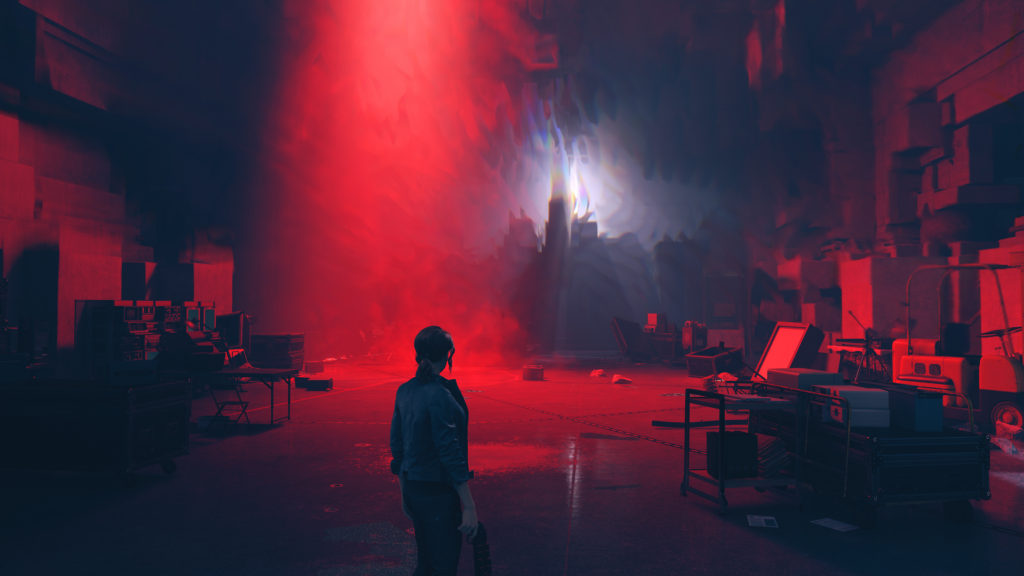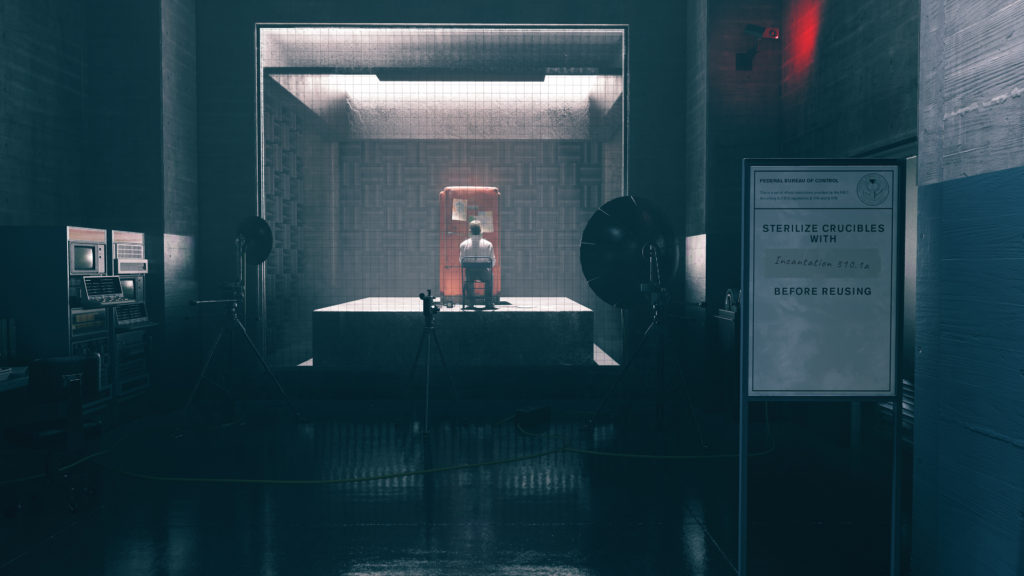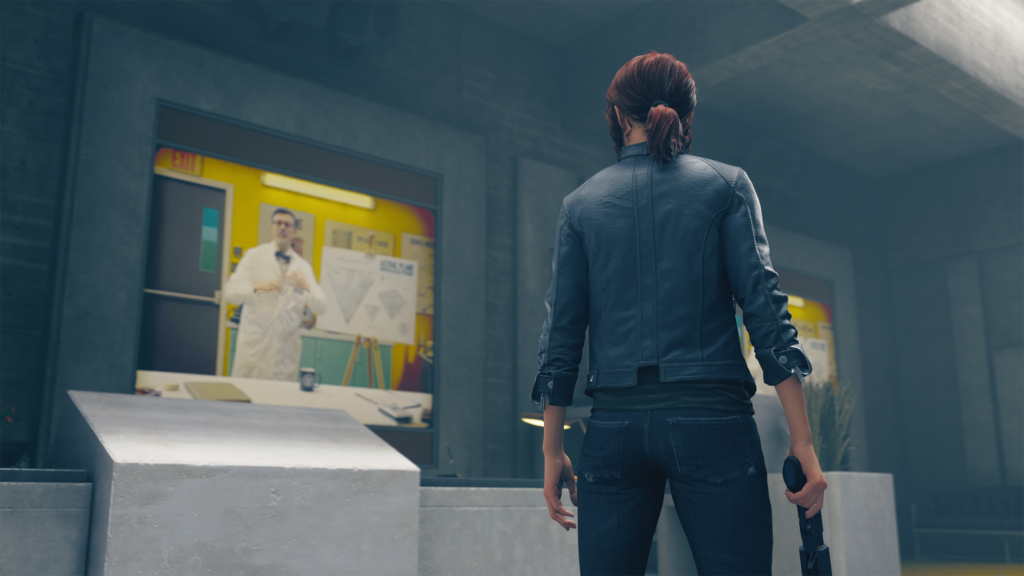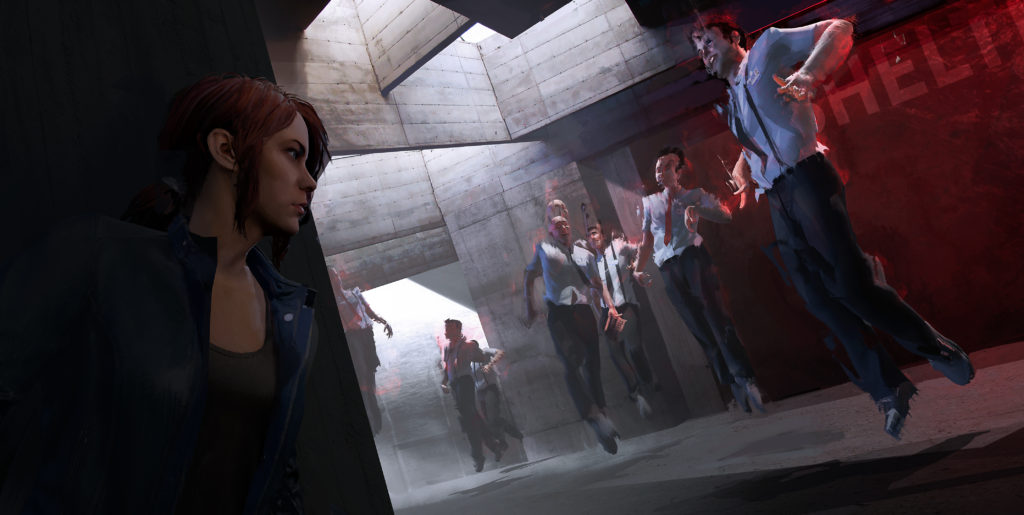
Control and The Bomb
When my grandmother was six her father took her to White Sands, the site of the first nuclear bomb drop. At the base of the observation tower desert mice scrambled in the dust for their meager dinner. She begged her father to let her take one home. Surely, the life she could give it would be better than this. But her father knew that each one of those mice had spent its life burrowing in irradiated soil, eating irradiated seeds, passing on its irradiated genes. He couldn’t let it into his child’s room.
The next day he brought her a guinea pig and told her that’s what happened to mice who got too close to the bomb. They grew.
When my family tells this story, we laugh. We don’t talk about my great-grandfather’s fear. Or his trauma. Or the fact that of all the things to get close to the bomb, those white mice got the best end of the stick.
I was raised in and out of New Mexico, the home of the bomb, in a family stained by our proximity to the Los Alamos and Sandia Weapons Laboratories. In most of America it is easy to forget that our nation produced such a horror. But for me that particular terror was never far away because it lived in our house and ate at our table.
Stepping into the lobby of the Oldest House in Remedy Game’s Control felt refreshingly like coming home. Control clearly gets it. It gets that the closer you get to atrocity the more absurd things seem.

Jesse Faden, the game’s protagonist, get it too. She says, repeatedly, that she’s been looking for the Oldest House all her life. And it’s not just because it is inside The Oldest House’s tangled interior that she can find her missing brother. There’s more to it than that. If you live a life where nothing makes sense, and where you can see the cracks in how things work, then finding a refuge from the outside world’s incessant sense making can be liberating.
People want things explained because that makes them safe, but there’s no explanation for how the employees of the Bureau of Control can file reports about the horrors that befall their colleagues and still organize an office book club. Just like there’s no explanation for how the employees of the Nevada Testing Ground could spend their days shoveling the top six inches of scorched soil into hazardous waste bins and still play a friendly bout of interoffice softball in the evenings. People’s lives expand to let atrocity in, and then they continue onward because there’s nothing else to do if you want to survive. The rolling stone of normalization grinds onward.
Control knows this and more than that the game wants you to have to face that fact head on. It continually juxtaposes the terrible with the familiar, the mundane with arcane. And all the while horror is metered out to you on company letterhead in cut and dried language designed to make things approachable.

On a mission to find her brother in the aptly named Panopticon, Jesse comes across a man staring at an anomalous object. If he blinks or looks away something bad happens—it’s not clear what. He begs you to take over for him and save him from this burned-eye nightmare because he hurts but he won’t subject people to what happens if he stops. You can see the object of his observation. It’s a normal 1960s style fridge, unremarkable in its plainness.
Looking at that fridge you have to ask yourself what horror you have welcomed into your life without realizing it, just because it happened to look like a fridge. Or a rubber duck. Or your own brother.
I think the truth is that most of us have done just that. We have laughed at horrible war stories our relatives told because the alternative would be to acknowledge that they are serious, or we’ve praised war criminals because it’s impossible to live with the fact that there’s nobody in power that actually has our backs. We all live in a country that dropped two atomic bombs and we don’t talk about it.
Much has already been said about how Control is a cold war story—the 60s boardroom aesthetics, the pervasive paranoia, the fact that the game’s main foe is literally a glowing red menace—but it seems clear to me that the game doesn’t just reference the cold war but the story of the bomb itself.

The first nuclear core was delivered to the scientists at Los Alamos on Friday the 13th, in a motel just like the one that Control asks you to traverse. The Seaside Motel is so eerily reminiscent of that event that I half expect to spin Jesse around and find Oppenheimer leaning over a crate in one of the corners. The cheerful smiling photos of Dr. Darling and his teams of scientists beam out of strategically placed art assets and FMV projectections in the same brittle way that Oppenheimer and his scientists beam from the pages of Los Alamos history books. These are men who have kidnapped a child, who have welcomed the deeply terrifying astral spikes into their workplace, who have made a door for the Hiss to come in but Control lets us meet them first in the way they documented themselves: as normal people and not destroyers of worlds.
It’s in these small details and historical illusions that Control really shines. The game is dotted with documents that bring both humor and humanity to the sheer concrete walls. They all feel real, as if the person that authored them really was clinging to their sanity in the face of the work the Bureau did.
I found myself hunting for them more diligently than I chased the actual missions. I wanted to know what Control had to say about the Havana incident. I wanted to know how the office drama was playing out. I wanted to see all the ways this world that included levitation and endless quarries and bureaucratic pyramids was just like our own.

There are, of course, other things I like about the game. Combat is easy enough I didn’t get frustrated, but challenging enough that The Oldest House felt alight with danger. The plot was well paced and characters’ dialog felt realer than AAA dialog normally does. But all of this is just footnotes to the comfort of a video game that understands my family’s trauma, and the broken absurd world I grew up in.
People don’t stop going to book clubs when they start committing atrocities. They don’t stop complaining about the state of the office bathrooms either. They don’t stop having kids, or having lives, or being scared. Even playing video games in my off hours I don’t get to stop wrestling with the banality of evil or me and my family’s part in it.
In Control the bodies of these poor dead fools who thought they could control the multiverse hang perpetually overhead suspended by the very force they let in. You have to walk under them to grab collectibles or chase mission objectives. I would like to say they hang a perpetual reminder of the cost of messing with the unknown, but just like everything else, eventually I don’t even see them. Anything becomes normal if we live with it long enough.





